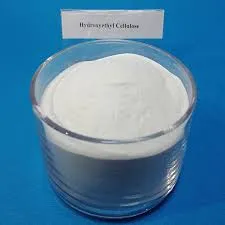
Okt . 22, 2024 14:16 Back to list
Exploring HPMC Viscosity Levels for Enhanced Formulation Performance and Stability
Understanding HPMC Viscosity Grades Key to Optimal Applications
Hydroxypropyl Methylcellulose (HPMC) is a widely used cellulose ether known for its versatility and functional properties. Among its various characteristics, viscosity is a critical quality that influences HPMC’s performance in numerous applications, ranging from pharmaceuticals to construction materials. This article aims to examine the different viscosity grades of HPMC, their significance, and how to select the appropriate grade for specific applications.
What is HPMC?
HPMC is a non-ionic, water-soluble polymer derived from natural cellulose. It is modified to enhance its properties, making it suitable for a variety of industrial applications. One of the critical attributes of HPMC is its viscosity, which can be tailored by altering the degree of substitution and molecular weight during synthesis. This allows formulators to design HPMC grades that meet specific viscosity requirements for different applications.
Viscosity Grades of HPMC
HPMC is available in various viscosity grades, typically classified based on their viscosity measured in a standardized way (often in mPa⋅s) when dissolved in water at a specific concentration. The viscosity grades can be low (10-100 mPa⋅s), medium (100-4000 mPa⋅s), and high (4000+ mPa⋅s).
1. Low Viscosity Grades These grades typically range from 10 to 100 mPa⋅s. They are commonly utilized in applications where lower thickness and smoother flow are essential, such as in liquid hand soaps, coatings, and as a thickening agent in food products. Low viscosity HPMC can enhance the spreadability of cosmetic formulations while maintaining a lightweight feel.
2. Medium Viscosity Grades Ranging from 100 to 4000 mPa⋅s, these grades strike a balance between thickness and fluidity. They are widely employed in the pharmaceutical industry for drug formulations, helping to stabilize suspensions and emulsions. In the construction sector, medium viscosity HPMC is used in tile adhesives and joint compounds, providing necessary workability while ensuring adequate adhesion.
3. High Viscosity Grades With viscosities exceeding 4000 mPa⋅s, these grades offer a more substantial thickening effect. High viscosity HPMC is favored in products that require excellent bonding characteristics and superior rheological properties. Applications include viscous gels, oil drilling fluids, and specialty adhesives. Their ability to retain water also makes them suitable for controlled-release formulations in pharmaceuticals.
hpmc viscosity grades

Importance of Viscosity in Applications
Choosing the correct viscosity grade of HPMC is vital for achieving optimal performance in specific applications. The viscosity affects several key properties
- Flow and Sprayability In agricultural sprays and coatings, low viscosity grades can enhance the spreadability, ensuring an even application on surfaces. - Stability In food and pharmaceutical products, the right viscosity helps maintain stability and improves shelf-life by preventing separation of ingredients. - Adhesion In construction applications, higher viscosity grades enhance adhesion and reduce slippage, critical for the integrity of building materials.
Selecting the Right HPMC Viscosity Grade
When selecting an HPMC viscosity grade, consider the following factors
- Application Needs Determine the viscosity requirement based on the specific application, such as flow properties, stabilization needs, or bonding strength. - Concentration Be aware that the viscosity of HPMC solutions can be influenced by concentration. Higher concentrations generally yield higher viscosity. - Temperature Sensitivity Some applications may involve temperature variations. Understanding how viscosity changes with temperature is crucial for certain formulations.
Conclusion
HPMC viscosity grades represent a vital component in the effectiveness and quality of numerous products across various industries. Understanding the appropriate viscosity grade for specific applications enables formulators to optimize performance, enhance product stability, and meet consumer needs. As industries continue to evolve and develop new applications, the demand for tailored HPMC viscosity solutions will only continue to grow, making it an essential topic for professionals in the field. By grasping the nuanced characteristics of HPMC viscosity grades, manufacturers can drive innovation and improve the efficiency of their products.
-
tile-bonding-additives-for-stronger-bonds
NewsAug.22,2025
-
construction-grade-rdp-for-wholesale-needs
NewsAug.22,2025
-
trusted-wholesale-hec-partners
NewsAug.22,2025
-
hec-solutions-for-industrial-excellence
NewsAug.22,2025
-
construction-additives-need-hpmc-essentials
NewsAug.22,2025
-
hpmc-versatile-cellulose-ether-for-industries
NewsAug.22,2025







